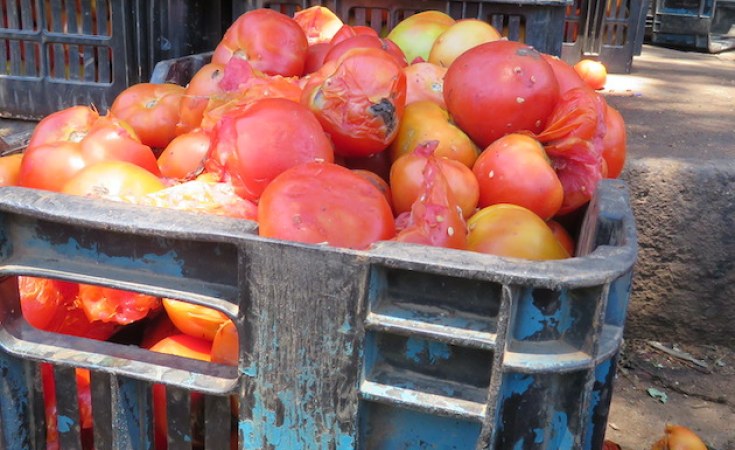Nigeria faces a paradox that cannot be ignored: while millions of households struggle daily with hunger, nearly half of the nation’s food output is lost to waste and spoilage. An estimated 40% of total production—valued in billions of naira—is discarded annually, with post-harvest losses claiming up to 50% of agricultural produce before reaching consumers.
This dual crisis of waste and hunger represents not only an economic setback but also a profound social and environmental challenge.
Beyond Scarcity: A Coordination Gap
The problem is not a lack of food, but a failure of coordination. Farmers in Kaduna watch their harvests perish for lack of access to buyers, while surplus meals from restaurants in Lagos are discarded instead of reaching food banks. The missing link is efficient systems that connect surplus supply to unmet demand at scale.
While organizations such as Lagos Food Bank and LAWMA continue to play an important role, their reach remains limited against the magnitude of the challenge. Solving food waste requires technology-enabled solutions that can match Nigeria’s pace of production and consumption.
A Digital Marketplace for Food Recovery
Emerging solutions, such as a Food Waste Marketplace Platform, provide a model for tackling the crisis. This system leverages real-time listings to make surplus food visible instantly, intelligent matching to connect supply with demand, and simplified logistics to ensure delivery before spoilage.
Imagine a Kaduna farmer listing unsold yams on the platform, with a food bank in Abuja arranging immediate pickup; a supermarket in Ikeja offering dairy products close to expiry to a Surulere community kitchen; or a restaurant chain alerting NGOs of surplus meals at day’s end. Each transaction not only prevents waste but also supports those in need.
The digital ecosystem also generates valuable data, enabling policymakers to design more effective food security programs and businesses to streamline operations.
Economic, Environmental, and Social Gains
Reducing food waste is not merely a humanitarian imperative. The benefits cut across multiple dimensions:
-
Business efficiency: Lower disposal costs and potential tax benefits from food donations.
-
Community resilience: Food banks and NGOs can expand their reach without equivalent increases in expenditure.
-
Environmental protection: Diverting organic waste reduces methane emissions and conserves the resources embedded in food production.
-
Job creation: Logistics, technology management, and community outreach roles will expand as food recovery networks scale.
Unlocking Nigeria’s Innovation Potential
For Nigeria, food recovery represents an opportunity to demonstrate how local ingenuity can solve global challenges. The solution, however, requires more than technology. Supportive government policies—such as incentives for food donations, investment in cold-chain infrastructure, and nationwide awareness campaigns—are essential to create an enabling environment.
A Call to Collective Action
-
Private sector: Restaurants, supermarkets, and manufacturers should view surplus food as a resource, not waste.
-
Government: Policies and infrastructure investments must prioritize food recovery as a national economic and social strategy.
-
Investors: Funding scalable digital platforms is both a viable business opportunity and a contribution to national development.
-
Citizens: Communities must embrace food recovery practices as part of a cultural shift toward sustainability.
Conclusion
Nigeria cannot afford to discard nearly half of its food while millions go hungry. A coordinated digital marketplace, supported by policy reforms and private-sector participation, offers a practical and scalable path forward.
This is more than a solution to hunger—it is a strategy for economic efficiency, environmental protection, and inclusive growth. The tools exist. The urgency is clear. What remains is the collective will to act.

